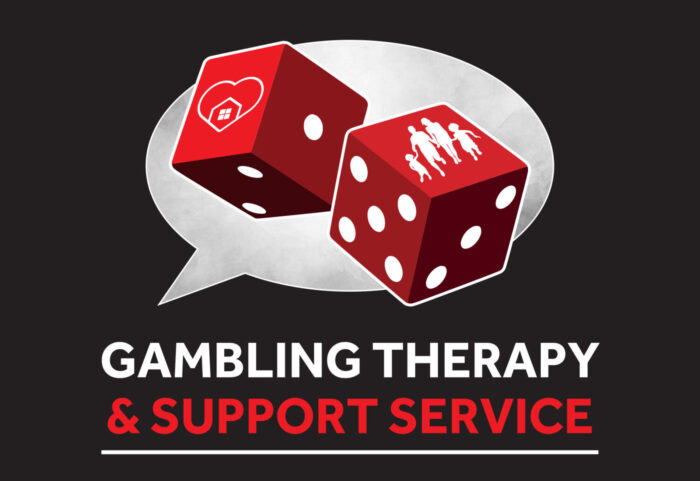Online gambling has become a ubiquitous form of entertainment, with millions of people worldwide enjoying the thrill of wagering on their favorite games and sports. However, it’s not all fun and games. For some, online gambling can spiral into addiction, causing severe financial, emotional, and social issues. In response to this growing concern, self-exclusion programs have been developed to help individuals take control of their gambling habits. In this article, we will explore the impact and effectiveness of self-exclusion programs in online gambling, breaking down the key aspects and outcomes.
1. Understanding Self-Exclusion Programs

Source: sportsbettingdime.com
Before delving into their effectiveness, it’s essential to understand what self-exclusion programs in online gambling entail, and how they can enhance your experience when gaming at reputable casinos at https://www.casinous.com/.
What is Self-Exclusion?
Self-exclusion is a voluntary program that allows individuals to restrict their access to online gambling sites for a set period, typically ranging from a few months to several years. During this period, they are prohibited from participating in any gambling activities on those sites.
How Does Self-Exclusion Work?
To self-exclude, individuals usually need to sign up with a self-exclusion service or contact the gambling site directly. Once enrolled, they are legally bound not to access the site for the chosen duration. Some programs also provide support and resources for dealing with addiction.
2. The Rationale Behind Self-Exclusion
Self-exclusion programs have gained traction due to several compelling reasons.
Addressing Problem Gambling
The primary objective of self-exclusion programs is to help those who struggle with problem gambling. By giving individuals the ability to exclude themselves, these programs aim to break the cycle of addiction and offer a chance for recovery.
Protecting Vulnerable Individuals
Online gambling is easily accessible, which can be particularly dangerous for vulnerable individuals. Self-exclusion programs provide a safety net, preventing them from succumbing to harmful behaviors.
Promoting Responsible Gambling
Responsible gambling is a shared responsibility between operators and players. Self-exclusion encourages gamblers to take responsibility for their actions and make more informed choices.
3. The Effectiveness of Self-Exclusion Programs

Source: ripplesnigeria.com
Now, let’s explore how effective self-exclusion programs are in achieving their intended goals.
Reducing Gambling Participation
Self-exclusion has been shown to effectively reduce the frequency and intensity of gambling among participants. A study conducted by the National Opinion Research Center (NORC) found that 88% of self-excluded individuals reported gambling less often.
Preventing Relapses
While self-exclusion isn’t a guaranteed cure, it can significantly decrease the risk of relapse. The same NORC study revealed that 57% of participants reported that self-exclusion helped them avoid returning to gambling.
Increased Help-Seeking Behavior
Self-exclusion often prompts individuals to seek help for their gambling problems. When faced with the consequences of their addiction, many turn to counseling and support services, which can be a crucial step towards recovery.
4. Challenges and Limitations of Self-Exclusion Programs
Despite their effectiveness, self-exclusion programs come with challenges and limitations.
Enforcement Difficulties
One of the biggest challenges is enforcing self-exclusion. Some individuals find ways to bypass the restrictions, either by creating new accounts or using third-party accounts.
Lack of Universal Standards
Self-exclusion programs vary in terms of duration, available resources, and support. This lack of standardization can make it difficult to compare the effectiveness of different programs.
Access to Unregulated Sites
Not all online gambling sites participate in self-exclusion programs. Players can still access unregulated sites, making it hard to prevent gambling altogether.
5. The Role of Support Services

Source: dpfss.ie
Support services play a crucial role in the success of self-exclusion programs.
Counseling and Therapy
Many self-excluded individuals benefit from counseling and therapy to address the underlying causes of their addiction. These services can help them develop healthier coping mechanisms.
Hotlines and Helplines
Hotlines and helplines offer immediate assistance to individuals in crisis. They are available 24/7, providing a lifeline for those struggling with addiction.
Community and Peer Support
Joining support groups or engaging with peers facing similar challenges can be a source of encouragement and motivation for self-excluded individuals.
6. Long-Term Impacts of Self-Exclusion
The long-term effects of self-exclusion programs are a critical factor in evaluating their success.
Improved Quality of Life
For many, self-exclusion marks the beginning of a journey towards a healthier, more fulfilling life. It can result in better financial stability, improved relationships, and reduced stress.
Reduced Financial Strain
Problem gambling often leads to significant financial losses. Self-exclusion can help individuals regain control of their finances and avoid further debt.
Preventing Harm to Others
By limiting their own gambling activities, self-excluded individuals can also prevent harm to loved ones who might be affected by their addiction.
7. The Need for Continuous Evaluation and Improvement

Source: corporatecomplianceinsights.com
The effectiveness of self-exclusion programs can vary based on several factors, including the individual’s commitment, the operator’s cooperation, and the presence of support services. Therefore, it’s essential for these programs to be continually evaluated and improved.
Regular Assessments
Operators and authorities should conduct regular assessments of self-exclusion programs to identify areas that require enhancement. This can help adapt the programs to changing needs and challenges.
Technological Advancements
With advancements in technology, online gambling operators can employ more robust tools to enforce self-exclusion, such as biometric identification or geolocation tracking.
Greater Operator Accountability
Regulatory bodies should hold online gambling operators accountable for their participation in self-exclusion programs, ensuring that they comply with standards and offer adequate support.
Conclusion
Self-exclusion programs in online gambling are undeniably effective in reducing gambling participation, preventing relapses, and encouraging help-seeking behavior. However, they are not without their challenges and limitations, and the long-term impact depends on the individual’s commitment and the support services available. As the gambling landscape continues to evolve, it’s crucial for these programs to be regularly assessed and improved to better protect those who struggle with addiction.
By understanding the impact and effectiveness of self-exclusion programs, we can contribute to creating a safer and more responsible online gambling environment for all. If you or someone you know is dealing with a gambling addiction, remember that help is available, and self-exclusion is just one step towards a brighter, more controlled future.

